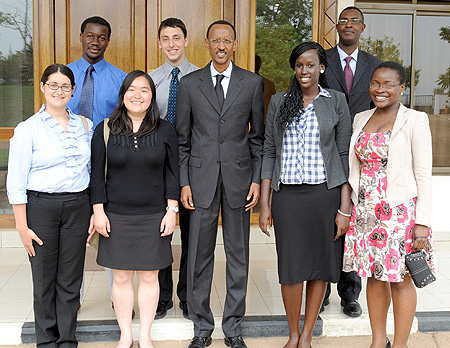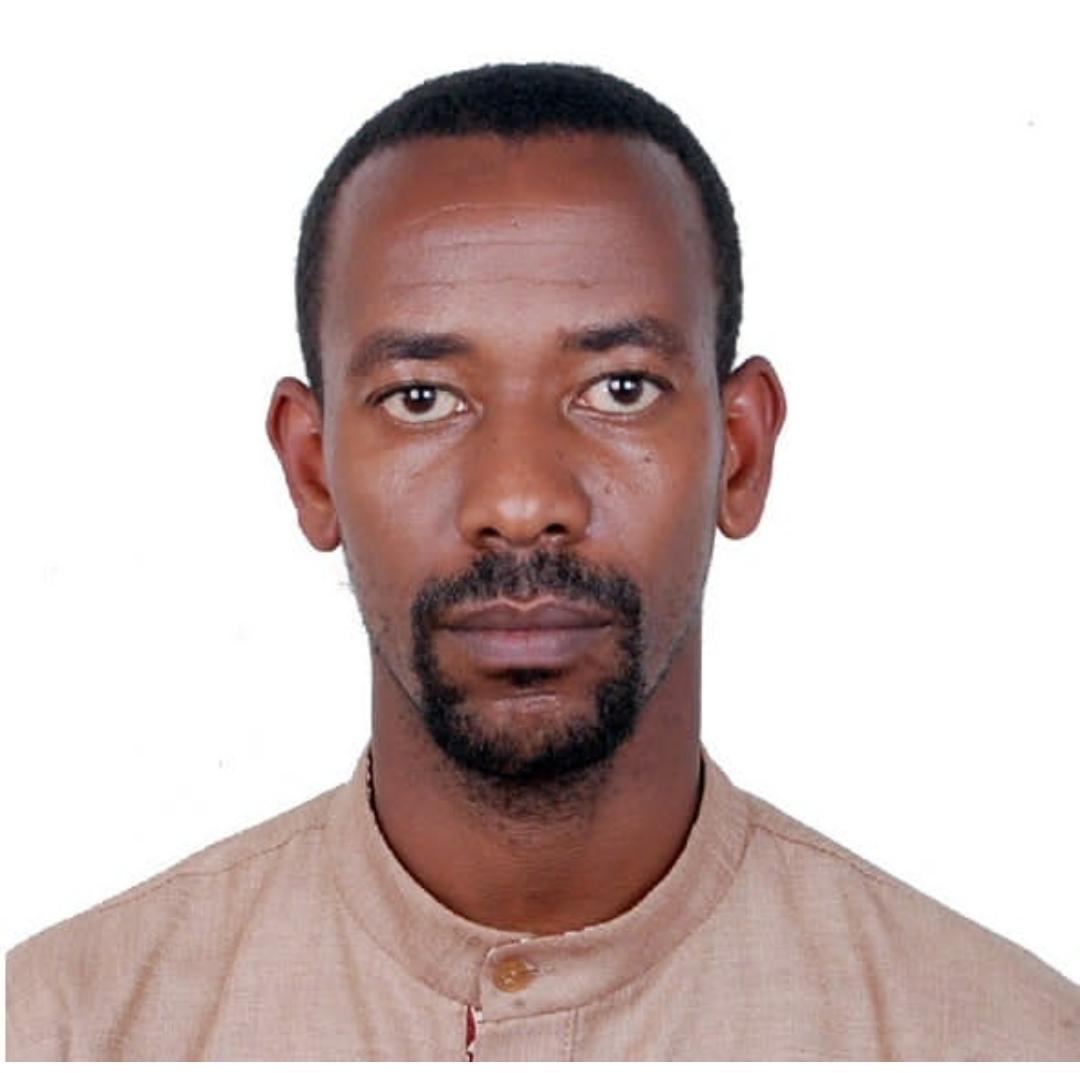URUGWIRO VILLAGE - President Paul Kagame, yesterday, hosted seven students from Massachusetts Institute of Technology (MIT), who have been in the country, for two weeks, as part of the Development Lab programme (D-Lab). The students, who have been working with local cooperatives to promote appropriate technologies for water, sanitation and energy solutions, shared with the President their experiences.


URUGWIRO VILLAGE - President Paul Kagame, yesterday, hosted seven students from Massachusetts Institute of Technology (MIT), who have been in the country, for two weeks, as part of the Development Lab programme (D-Lab).
The students, who have been working with local cooperatives to promote appropriate technologies for water, sanitation and energy solutions, shared with the President their experiences.
"We have been working with communities making charcoal out of agricultural wastes and other technologies that we have been demonstrating to the people in the Southern Province,” said Marissa Simmons, one of the students.
The students were mostly interested in demonstrating the use of low-cost, readily available local materials so that these initiatives can be sustained after their departure.
The group, comprised of students in the fields of Electrical Engineering, Computer Science, Management Science, Mathematics, Physics, Chemistry, Biology, Civil Engineering and City and Regional Planning.
Simmons said that they briefed President Kagame on the projects they had undertaken with the rural communities, in areas like water sanitation, agriculture and the economy - in line with the country’s vision.
"The response of the people has, generally, been good and we had interesting experiences,” she said.
Faith Keza, a Rwandan student who was part of the delegation, noted that the local people, with whom they worked, expressed enthusiasm and zeal in continueing using the technologies introduced to them.
She said that students of the National University of Rwanda (NUR), with whom they partnered, would follow up on the projects and inform their MIT counterparts if anything needed to be done.
Ends


